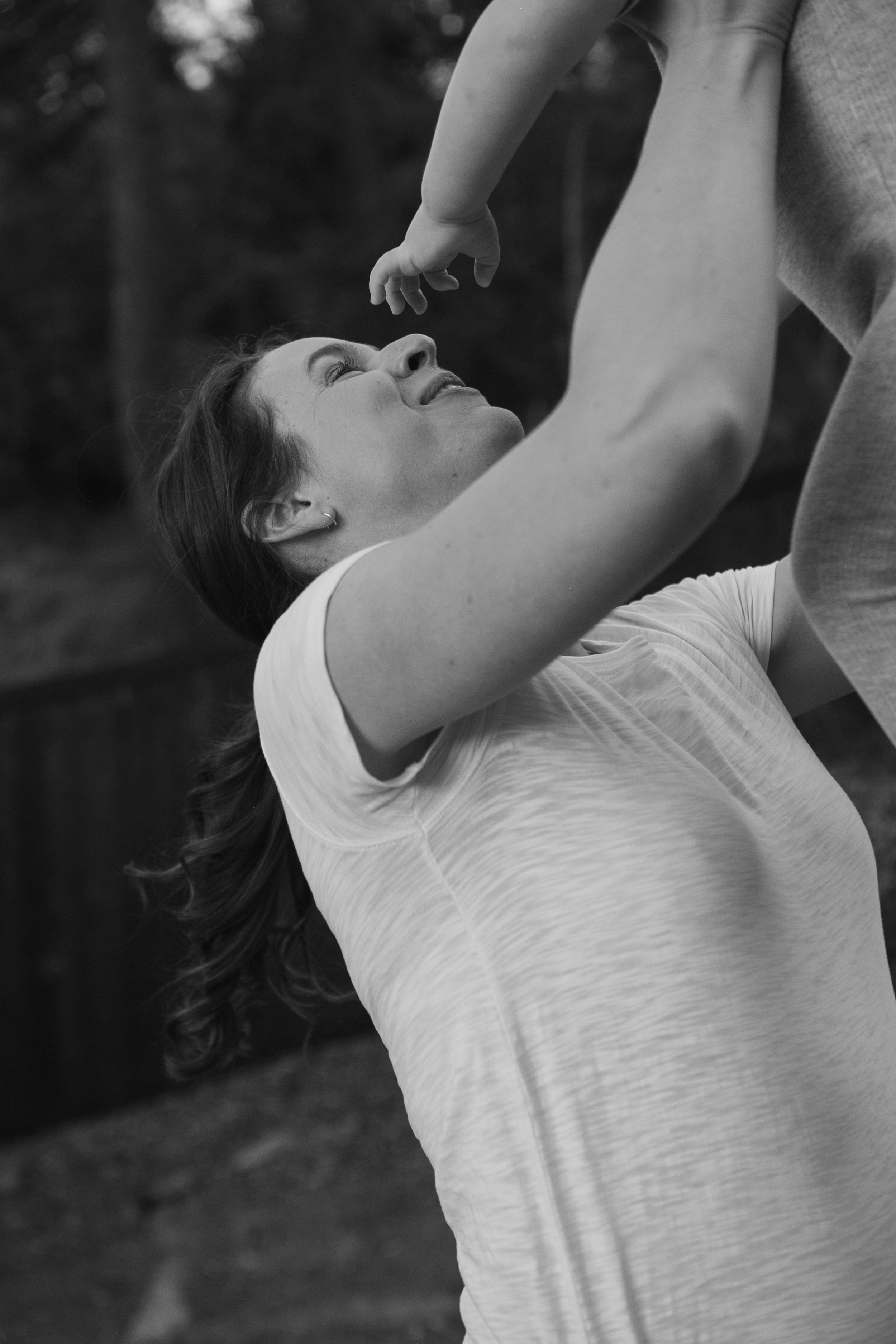Blog
Lessons from a pediatric neurologist
One of my sons has epilepsy, and has taken five different medications over the past few years.
Each time we try a new medication, his pediatric neurologist (who will be sainted after she dies, I’m pretty sure) discusses the range of medication dosage with me and my husband.
And then, every time, she says: “But we should start at the minimum viable dose.”
In other words: If my son could take between .5 and 2 mL per kg of bodyweight, let’s start at the bottom and only increase if necessary.
Greater dose, most people agree, comes with more side effects.
So start with the minimum viable dose.
One of my consistent observations as a life coach has been: Most of us do not start at the minimum dosage.
Of course, this observation is not new. We take on too much, we exhaust ourselves, blah, blah, blah.
But recently, I’ve had a new insight about it: Many of us lack the imagination for what a minimum viable dosage *could* be.
…
Here’s the thing: my son’s neurologist knows, for a fact, the range of suggested ml/kg of body weight that can be effective. For most of the medications my son has taken, it’s typically already been established in the research literature.
For us in the non-medical world, I think part of the problem is that we *think* we’re doing a small dose. We think 30 minutes a day of exercise or writing or journaling, for example, is doable and sustainable — while also being efficacious towards our goals.
But what if that’s nowhere near the minimum viable dose?
One of the great joys of working with my 1:1 clients, is that from my experience and skill, I can give them outrageously doable assignments that nonetheless help them achieve their goals. But today, I just want to offer that idea for you to chew on:
“30 minutes a day” might become “30 minutes once a week.”
“Actually do three things this week” might become “Just make a list of three things you could do, this week.”
“Take the next key step” might become “identify the next key step, and just think about it each day this week.”
Over and over and over, my clients make more progress with me than they would on their own. There’s many reasons for that, but think it’s not so dissimilar from what my son’s neurologist knows:
With greater dose, comes more side effects.
I keep the dose quite low, minimize side effects, and my clients are better able to reap the positive effects of the “treatment” (to use that medical metaphor.)
…
So I would offer you this week: How could you significantly lower your dosage?
In my clinical experience, it still might be quite potent.
…
As always, I’m rooting for you in the week ahead. You’ve got this.
Katie
p.s. The most successful people in the world have coaches — from CEOs to Olympic athletes. Which makes sense; successful people get that way by being open to discovering blind spots, re-examining old beliefs, and trying new things.
Why not you?
If you'd like to work with me 1:1 — learn more here.
Want to receive essays like this every Sunday morning? Sign up for my newsletter!
On learning (+ being 100% Portuguese)
My husband is Portuguese. In fact, if he were here, he would like you to know that he is 100% Portuguese.
Several years ago, I set out to learn his native language. We got a beginner Portuguese textbook, and sat down for 45 minutes each week to work our way through.
Reader, It was rough.
Partly, Portuguese sounds were tough for my beginner mouth (In my opinion, European Portuguese sounds like a mix of a Slavic language — think Russian or Lithuanian — and saying the words “Oshkosh B’gosh” over and over.)
But mostly, it never seemed like I was really making progress.
Sure, we were slowly (so slowly!) inching our way through the textbook, but I often couldn’t even remember what we did in the week before. Was I making any progress?
I thought back to my days as a successful student:
There had been studying. There had been tests. There had been more than 45 minutes a week.
“I need to study,” I told my husband. “I’ll make flashcards, and vocab lists. I’ll quiz myself and review, so I can remember everything week to week.”
My husband listened to my plan. And then he calmly said it was a bad idea.
“If you keep showing up, you’re going to learn things.” He insisted. “Why don’t you just let yourself remember what you remember?”
I took his advice, mostly because I was busy and tired. It was only later that I realized he was suggesting an entirely new approach to learning for me.
…
When my husband corrected me on the pronunciation of the Portuguese letter “i” (i’s are always pronounced as “ee” in European Portuguese), I used to tense up and try to get the concept lodged in my memory.
But after deciding to just “remember what I remember,” I’d say: “I’m sure I’ll remember it eventually, if you keep reminding me.”
And then I did something incredible: I’d just “forget” about it. I just started assuming that eventually, that concept would get lodged in my memory.
And you know what? It freaking worked.
I started doing it with everything: vocabulary, conjugations, grammar.
Yes, my husband had to correct my pronunciation of the word “para” about a bajillion times (“para” can mean either “stop” or “for/to,” depending on the pronunciation of the first “a”). But also, I eventually totally got it — and now I do it without thinking.
I’m nowhere near fluent, but in the past several years, I’ve gotten to the point where my pronunciation is very passable, I can put together coherent sentences, and I can even eavesdrop a teensy bit on my husband’s phone conversations with his parents back in Portugal.
Our 45 minutes a week dropped to 35 minutes a week once my sons were born. And if there’s a been a lot of stress that week, sometimes 35 minutes doesn’t happen.
In 35 minutes or less a week… In allowing myself to remember what I remember…
… I have learned a lot.
…
I share this story, in the hopes of reminding you of two things:
Sometimes, the ways that we move through the world eventually stop serving us.
I was a successful student in high school and college (Magna Cum Laude at Princeton, thankyouverymuch) because of my rigorous approach to learning.
And yet, that same rigor made me associate learning with “tightness” and “stress.” Sometimes we have to completely take apart our old ways of doing things — ways which may have worked well for us in our past — in order to build something new. And that’s not only okay — it’s fantastic.Don’t underestimate what you can get done in 35 minutes a week.
Thirty-five minutes a week may seem, frankly, measly in the scale of a week. It may seem measly in the scale of a month. I’ve spent no time on this thing! How will I ever make progress?
But don’t underestimate the compounding effect over time.
…
Take care, my friends.
Or, as one says to a friend in Fazendas de Almeirim, Portugal (my husband’s hometown): Beijinhos.
Katie
p.s. It can it be tough to take apart + rebuild how you move through the world. You know what makes it 2x-100x easier? Having a life coach.
Here's what Jackie, one of my clients, said about working with me:
“I feel like the work I did in the past 6 months with Katie have catapulted me forward and I made progress in my own personal goals (weird eating habits, tech habits, personal art goals) that would have taken years if I had not worked with Katie."
Learn more about working with me here.
Sign up for my newsletter to get helpful + encouraging essays like this every Sunday morning. It’s free!
Being a beginner can suck. Here's one way to shift that mindset
Last week, I wrote about being a beginner. I made — in my opinion — a pretty compelling argument: if you’d like more vibrancy + sparkle in your life, being a beginner can help.
But there’s one more thing I want to say about this it’s-fabulous-to-be-a-beginner thing:
It can really suck to be a beginner.
I mean, sometimes it’s totally lovely + charming to be a beginner. I’m dancing the samba and I’m bad and I don’t care! But at other times, a beginner can bring up thoughts like:
I don’t know what I’m doing.
I’m terrible at this.
Everyone will *see* me being terrible at this. And judge me. And that judgement will cause something bad to happen.
These thoughts can be so scary that they stop us entirely from doing the thing that we want to do.
So today, I wanted to write to you the astonishingly effective tool I use to deal with painful thoughts like this. (And all kinds of other painful thoughts, actually).
The tool that I use is called Thought Work.*
I want to explain to you how it works, and then I’ll share a personal example of how I use it.
…
How it works:
There are two parts to Thought Work: (1) doing a thought download, and (2) analyzing your thoughts.
(1) Doing a Thought Download
Set a timer for 5 minutes, and write down every thought you have about a topic. (e.g., every thought you have about your attempts to learn French, or your new job). Thoughts can be judgements, fears, desires — anything. Just write down one per line on your paper, so it’s really easy to see each separate one.
(2) Analyze your thoughts.
Once you have all of your thoughts in a list, just take them one by one, and analyze them. You might ask yourself questions like:
In what ways is this thought true? In what ways is it not true?
Is there a thought that you think could be more true?
Could another thought be more useful to believe?
The point of this is to systematically examine your thinking. We often believe our thoughts as if we were reporting scientifically verifiable facts — when in reality, our thoughts are just beliefs. And someone else could just as easily… believe something completely different.
This practice may sound obvious. It may sound like something you already do, informally, in your head, or when you’re talking to your best friend.
But do not misunderstand me: doing it on paper, on a regular basis, is a radically different game.
…
An example of how I use Thought Work
In my free time, I’m writing a romance novel. I love relationships in general and romance novels, specifically — it’s something I’ve wanted (and tried, on and off) to do for years.
And yet, I’m a beginner at writing romance novels. The reason I’ve been “working” on a romance novel for so long — but not had a regular writing practice, till recently — is that my mind was full of fearful thinking on the topic.
I had thoughts like:
You’re too tired to write today. Everything you write will be terrible.
You’re not inspired. Don’t bother today.
You shouldn’t write at all. You’re a terrible writer of fiction.
Fine, you can write it. But you can’t show it to anyone or advertise it publicly to people who know you. Everyone would judge you for writing a romance novel. Also for how bad this novel is going to be.
So, of course, I didn’t write regularly!
It was only when I started doing Thought Work, each time before I sat down to write, that I was able to clearly see + dismantle each of these Garbage Thoughts. (I call thoughts “Garbage” when they are not true + harmful to me).
…
Here is, for example, my Thought Work From yesterday (I won’t show you the separate Thought Download; here is my analysis of each thought):
I’m too tired to write.
It literally doesn’t matter what you write, so it doesn’t matter if you’re tired. Just write absolute GARBAGE. That’s 100% FINE.
My writing will be bad.
To be honest, you are a terrible judge of writing. Your writing is pretty solid B- level, which is actually pretty awesome, considering what a beginner you are. You always complain that it’s bad, but it’s not true. So you have two options:
1. You can STOP complaining that it’s bad. Because it’s wrong. It’s just a dumb tape in your head. It’s actually pretty decent and will probably entertain at least one person. And once you’ve written a few novels, it’ll probably entertain a lot of people, because you’ll be an even better writer.
2. You can keep thinking you’re terrible, if you like it or find it motivating or something?
(No, actually I hate thinking this. It is painful and it’s discouraging and makes me never want to write again.)
But I can’t write TODAY.
Why not? Like, literally why not? You can write garbage. But it won’t be garbage; it never is. You CAN write something. Also — the goal of writing is to get to know your characters. So GET TO KNOW THEM!!
I need to change pants first.
No, you don’t.
Fine, whatever — do it. Change pants. Then set a timer and WRITE.
…
Having done this daily, it feels much easier to dismantle these thoughts. They go down easily, with less of a fight.
But I cannot overestimate how impactful this has been for me. Once I dismantle my thoughts, on paper, I feel so much freer to write.
And, of course, when we see someone else's thoughts it’s easy to see how ridiculous they are. You might be thinking to yourself: Well, of course, those are Garbage Thoughts, Katie! You definitely shouldn’t believe them. Just embrace being a beginner.
And yet, is there something you’ve been wanting to be a beginner in, but haven’t actually done yet?
I would bet you have your own Garbage Thinking on the topic.
Will you do a Thought Download and see?
(And to truly experience the life-changing effects of thought work, I recommend doing it daily for two weeks. When you systematically take apart your Garbage Thinking for fourteen consecutive days, you actually do — for real — start to believe different things.)
* Thought work, at its core, is simply the process of seeing and questioning one’s thoughts; we could trace it to established traditions from Buddhism to Cognitive Behavioral Therapy (CBT). The form I particularly love was developed by Brooke Castillo’s work at the Life Coach school, and I learned about it through one of my coaches, the wonderful Dielle Charon.
As always, you’ve got this.
Katie
Sign up for my newsletter to get helpful + encouraging essays like this every Sunday morning. It’s free!
The thought that led to huge personal growth for me
2021 is barely halfway over, and already, it has been an astonishing year of personal + professional growth for me.
When I say “astonishing,” I mean it. As in: no one is more astonished than me about how this year is turning out.
I’ve never felt more confident and skilled as a coach, and my clients have never gotten better results. My business has grown financially in ways that I used to be afraid to admit I wanted.
I feel physically well. Mentally sharp. Happy, a truly astonishing amount of the time.
Oh and: I freaking have 1-year-old twins.
Let's flash back to December 2019. I'm on the grey couch in my living room, crying to my husband: I’m not sure I can handle twins. I’m going to fall apart. My business is going to crumble.
Many factors helped make this year astonishing (Getting great childcare! All of these!). But there was one thought that I consciously decided to believe this year… and I think it made a huge difference.
Here it is: I believe I can learn anything with the right teacher.
It sounds simple, I know.
But don’t underestimate it.
I believe I can learn anything with the right teacher.
…
One example, of many:
In January, I admitted to myself that I wanted to grow my coaching practice — to reach more people, and to make more money — and I wasn’t sure how. I was a bit ashamed, to be honest, that I hadn’t figured out how to do it on my own already.
But I reflected on it and decided: I believe I can learn anything with the right teacher.
So instead of feeling ashamed… I went out and found a teacher — a coach. And she freakin’ rocked my world. It turned out that I could be more successful while feeling calmer and less tired.
I have done this on several key occasions this year. My teachers have been coaches, books, courses, a stylist, and a design agency. Many of my lessons are still in progress.
But mostly, I am astonished by the potency of the thought: I believe I can learn anything with the right teacher.
If I believe I can learn anything with the right teacher, then it’s totally fine that I don’t know how to do what I want to do yet.
My only job is to go and find my teacher.
Going and finding the right teacher takes patience. It takes humility. For me, it also took a decision: “I am willing to spend money to invest in myself.”
(That has been another lesson of this year. I have never invested in myself to the degree that I have in 2021. And yet: my investments have paid astonishing returns.)
…
I have good news: there’s still time for your 2021 to astonish you.
Do you believe that you can learn anything with the right teacher?
What would happen if you did believe it?
…
As always, I’m rooting for you in the week ahead. You’ve got this.
Katie
p.s. Would you like me to be your teacher?
I’m really, really good at helping people feel amazing about their lives.
Finally making progress on that screenplay. Finally finding a new job. Doing higher quality work, with fewer hours. Feeling: calmer, happier, more connected, more productive.
I’m currently fully booked, but I have 3 openings for new clients in October. I’m getting booked in advance now — so I’d recommend reaching out now if you’d like to have a fall start.
(Plus, how fun would it be to finish out the summer — lazing on the beach, reading a book with a cold La Croix next to you…knowing that you’re about to start a fun + life-changing life coaching engagement in the fall?)
Learn more about my work + apply for a consult here.
Sign up for my newsletter to get helpful + encouraging essays like this every Sunday morning. It’s free!
One place to start on your self-improvement journey
There are times in our lives where we have the sense — perhaps clearly, or perhaps indirectly, out of the corner of our eye — that we need to do something differently. A big change is brewing in our professional or personal lives.
But at the same time, maybe it’s not time to act just yet. Maybe we aren’t sure what we want to change, or maybe we’re not 100% ready.
I have a suggestion for those times.
Here it is: Start with the obvious.
So many of us spend so much time vaguely agonizing, but not really taking action, on that big change (Should I apply to this job? Or that one? Should I go back to grad school? Should I break up with them, or try to work things out?). And that’s great.
But sometimes, we also have one or two or seven things that we know for sure we need to do in our lives. Maybe we’re deeply dissatisfied with our professional situation and need to fix that, but we also know that we would feel much better in our lives if we:
Took a walk
Didn’t spend tonight on a screen
Saw a friend
Ran those three errands on our to-do list
Finally painted our bedroom
My suggestion is that you start by doing the obvious stuff. Start by cleaning your car or folding your laundry or calling your grandma or meal-prepping lunches for the week.
I’m not saying that you should ignore that bigger, thornier issue. Far from it!
But sometimes we spend so much time agonizing over that big, thorny issue, that we forget: When we move forward on things that we need to move forward on (even things that may seem totally unrelated to our big, thorny issues)… something slightly magical starts to happen:
Because we are behaving in the world differently, the world looks different.
When the world looks different, we have new insights.
When we have new insights, we make different choices.
In other words:
Action begets insight.
Which begets action.
Even if you start with something totally random.
So, if there’s some big, thorny issue that you are chewing on, may I suggest that this weekend you start with something obvious?
As always, I’m rooting for you. You’ve got this.
Katie
If this essay resonated with you, you'll love my newsletter. Sign up for free + get new ideas every Sunday!
Feel like you're off track? Read this.
I have bad news and good news. It’s the same news:
Your journey probably won’t be linear.
Not for your career.
Not for your relationships.
Not for your confidence.
Not for your eating.
Not for your body size or body image.
It’ll get better and then worse and then better and then worse. Whatever “better” and “worse” mean, anyway.
Then it will go sideways and backward and to the right and the left and the southeast and northwest.
Whew. Do you feel how exhausting it is? All those different directions?
This is bad news because it is friggin’ annoying that your life won’t progress like an arrow, zooming towards its destination.
But it’s also good news. If you feel like you're “off track” today or this month or this decade…it doesn’t necessarily mean you’re actually going in the wrong direction.
Of course, this isn’t to say that you can’t try to grow in the direction that you care about! I’m a coach, for goodness sakes. I help my clients do that all the time.
But it does mean that just because your journey seems zig-zag-y, it doesn’t necessarily mean anything is wrong. You might just need to take a breath, ask for a hug, and buckle up.
And of course, I’m rooting for you along the way.
Katie
If this essay resonated with you, you'll love my newsletter. Sign up for free + get new ideas every Sunday!






